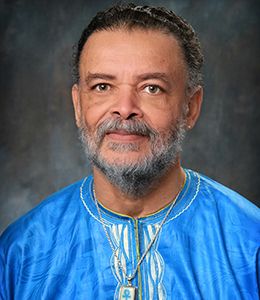Psychology Minor
Advantages
Deepen your knowledge of psychological theories and human development to further your career-readiness in the field.
Outcome
Social Worker in the Mental Health or Drug & Alcohol Fields
All Widener University campuses will be open for in-person classes and business on Tuesday, Feb. 24.
If you have concerns about being able to safely get to campus, contact your professor or your supervisor. Visit widener.edu/emergency for details about student services.

Pursue a major that emphasizes community-based learning and close mentorship as you develop the skills to make a lasting impact as a trained social worker.
Major & Minor
On Campus
In our undergraduate social work (BSW) program, you’ll experience an education rooted in social justice, real-world experience, and civic engagement that will prepare you to be a leader in the social work field.
Social work is a professional career that is filled with meaning, passion, diversity, and action. As a social worker, you will have a direct positive influence on the well-being of others. Not only will you help provide resources and find solutions to complex problems, but you will help create healthier families and communities along the way.
Our mission is simple. We aim to prepare culturally competent generalist social workers who are:

Widener University's Center for Social Work Education is accredited by the Council on Social Work Education.
View the Loading... for information on program requirements.
College is about exploration. At Widener, you'll complete a general education curriculum that supports just that. You'll have the flexibility and freedom to dive deep into the topics that spark curiosity, challenge your mind, and power your personal and academic growth.
Along the way, you'll cultivate critical, meaningful skills employers seek, including:
It all starts with ASC 101: Thinking Through — a selection of around 40 course topics that will encourage you to go deeper and examine complex issues that shape our world and our ways of relating to one another. When you dive into the possibilities, you're sure to find multiple courses that inspire and intrigue you, regardless of whether they align with your major! Think of it as an opportunity to step outside of your comfort zone and truly learn something new. Then, in your senior year, you'll come full circle with a capstone course that takes your Thinking Through topic to new heights strengthened by everything you've cultivated along your college journey.
The BSW program goals flow from the mission:
The BSW program mission and goals are also based upon the following themes:
At Widener’s Center for Social Work Education, we are constantly striving to improve. This requires assessing how we’re doing—both with our students and our community. We use this information—exit surveys, student focus groups, designated benchmark assignments, and alumni interviews—to assess how to continuously improve student learning outcomes and professional development. This involves curricular analysis and improvement, innovative and experiential pedagogy, and competency-based education.
All Council on Social Work Education programs measure and report student learning outcomes.
Our program identifies field education as one of the most important parts of a social work education. In field placements, students have the opportunity to apply classroom learning in an agency setting. This learning takes place under the direction and supervision of a trained field instructor who is employed by the agency and skilled in working with students.
To maintain a quality field education program in an ever-changing social service environment, our program adheres to three basic principles:
During the senior year fall and spring semesters, students spend two full days each week in a field agency for a total of 420 hours. Students meet individually with a field director in the spring semester of the junior year to determine an appropriate field placement. Each field experience is personalized and compatible with the student's work experiences, interests, location, and goals.
Students are required to meet with their field instructors individually on a weekly basis for supervision. A social work faculty member serves as the liaison between the student and the field placement. Students also take a social work practice class each semester with the same faculty member, and a field discussion is integrated into the class.
The BSW program offers the following dual degree options:
All students enrolled in these programs must consult with their advisors in social work and the corresponding program for accurate academic advisement in both programs.
Earning an accelerated master's degree will enhance your job opportunities and prepare you for rapid career growth—all while saving you time and money.
Fast Track to a Social Work MSW Degree
As a BSW student, you have the unique opportunity to complete a bachelor's and master's degree in as little as five years in our Loading....
Earn an Accelerated Master's in Another Field of Study
Widener also makes it possible to complete a 4+1 degree in a different field of study through our Accelerated Advantage 4+1 program.
Child Welfare Education for Baccalaureates (CWEB)
This innovative and unique program is designed for students interested in developing a career in public child welfare. Students apply to the CWEB program in their junior year for a senior-year field placement. Accepted students are placed in a public child welfare agency.
The State of Pennsylvania will pay senior-year tuition and a stipend for participating students. Because of the state's investment, the program requires that, upon graduation, students work for at least one year in a public child welfare agency.
Deepen your knowledge of psychological theories and human development to further your career-readiness in the field.
Social Worker in the Mental Health or Drug & Alcohol Fields
Develop a solid theoretical understanding of social problems to better assist your clients.
Behavioral Health Counselor
Expand your insight into the criminal justice system and explore how you can help individuals assimilate back into society.
Probation Officer
Deepen your understanding of domestic and international political systems to assess what government systems would best benefit the community.
Community Outreach Worker
The Bureau of Labor Statistics estimates an 12% by 2030, much faster than the average for all occupations.
Learn more about the responsibilities of a social worker.

In the Center for Social Work Education, we take your education personally. Our program's small, interactive classes will deepen your learning. With an average of 13-18 students per class, your professors will get to know your strengths and struggles and will provide one-on-one support to maximize your growth and development as a social worker.

Your education will extend beyond the classroom and into the community with service learning opportunities. You'll partner with local agencies and community organizers to engage in community-based work and research that will strengthen your understanding of how to best provide services to disadvantaged individuals, families, organizations, and communities while contributing to the knowledge base of the profession.
You'll gain hands-on learning during your field placement experience senior year. Our field education director will work with you to match you with a local social services agency so you can be immersed in a professional environment and apply the knowledge and skills gained in the classroom in the agency setting.

Social Work majors have the opportunity to join various clubs and organizations across and outside of campus to expand their network, including the Bachelor of Social Work (BSW) Club, the National Association of Black Social Workers (NABSW), and many more.
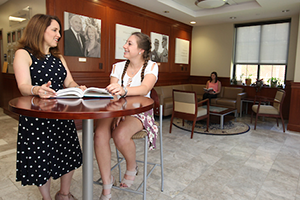
We want to get to know you and see you succeed. Professors will pay attention to how you learn and what you want to accomplish. Your Personal Student Success Team—faculty and peer mentors and liaisons for campus resources—will make sure your first year runs smoothly.
Without skipping a beat, you’ll have what you need to make Widener your second home. And you’ll know how to invest in the greater community, from professional opportunities in Philadelphia to volunteer experiences in your new backyard.
Lean more about faculty mentorship
Explore resources for academic & career support
Find support for health & wellbeing
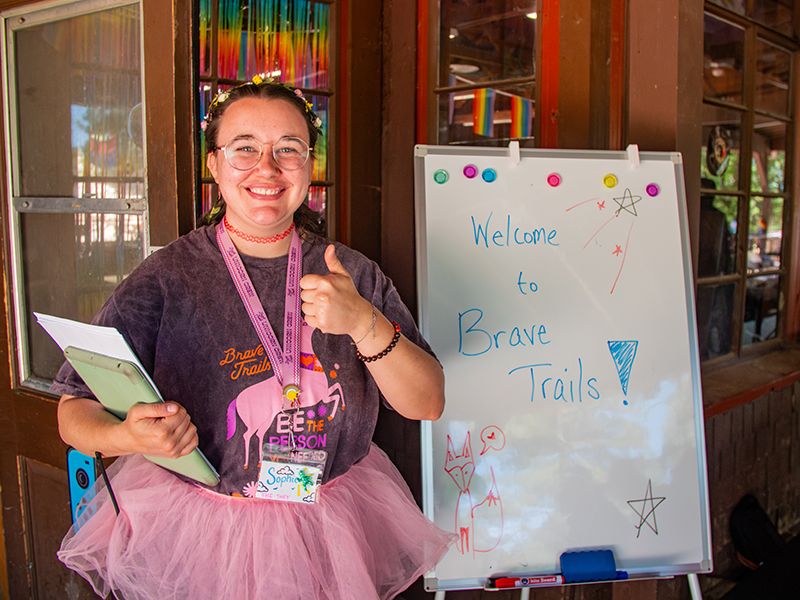
"Camp has always been such a big part of my life... I think the education I got through Widener really helped me to fuel that passion and helped me to make connections that I didn’t know could have been made."
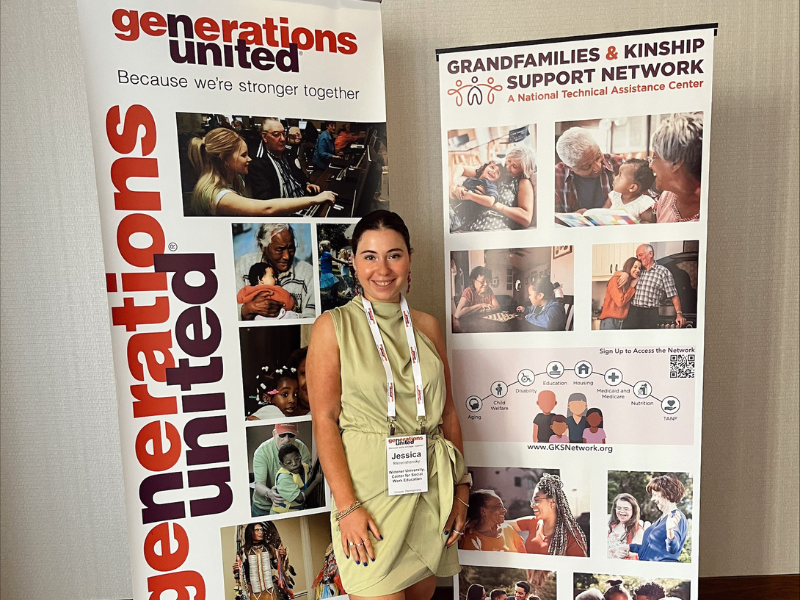
"Having the opportunities that my mentor Dr. Robin Goldberg-Glen gave me—to speak at two symposiums as well as a conference with a full crowded room—helps me with networking and connections and puts me out of my comfort zone."

"Widener has helped me take my academics and what I’ve learned in classes and apply it not just in the Chester community, but to the whole world in general."
"I strive to create an engaging, dynamic, and responsive learning environment. By encouraging self-reflection and co-created learning spaces, I aim for students to finish the course with confidence in the material, a sense of leadership in their own learning, and an understanding of the link between their work and social justice."
"My approach to teaching is best described as embracing an existentialist and social reconstructivist perspective, emphasizing respect for what each student brings to the classroom and students’ responsibility for their own learning. In my teaching at Widener, these methods have resulted in positive outcomes as measured by student course evaluations and verbal feedback."
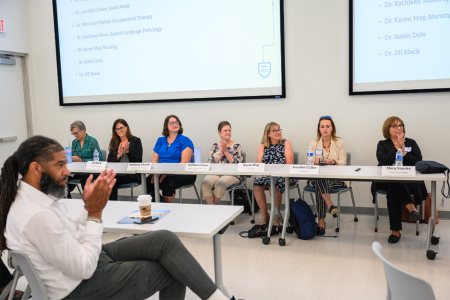
A partnership between Widener and the Coalition of Culturally Competent Providers invites new conversations about community care and creates opportunities for health and human services students.

Widener is known and valued for its powerful inside track, and Widener’s professors are at its heart. Get to know seven professors from across the university and the alumni they mentored who exemplify the life-changing impact of the inside track.
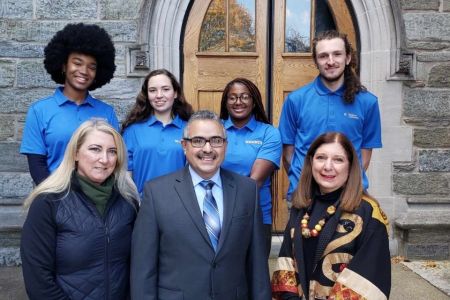
Students in a social work class participated in a hands-on service project that connected them with older adults to combat hardships faced by senior populations. Along the way, they discovered meaningful relationships and career opportunities.
Our admissions and financial aid teams are here to support you every step of the way. Have a question? Ask away!
Applying to Widener is easy—and free! Simply complete our Widener Application or the Common Application. You'll also need your official high school transcript and either an admissions essay or your SAT/ACT scores. We're a test-optional school, so there's no need to submit both.
Know you're interested in applying to Widener but unsure if you're ready to zero-in on a major? You can apply as an Exploratory Studies student with an undecided major. This program will help you start your college journey on the right foot while you explore which undergraduate program is the right fit for you.
We accept applications on a rolling basis—there are no hard deadlines. Apply when you're ready and we'll take a look as soon as we receive your app.
Key dates to keep in mind:
Once we receive your application and all materials, you can expect to hear back from us quickly. Along with your application decision, you'll also find out about any merit-based scholarship awards. You're automatically considered for merit scholarships as soon as you apply—you don't need to apply separately.
If you apply before November 1, you are considered an Early Action applicant which comes with benefits like:
All applications are non-binding, so why wait? Apply today!
Our admissions team will help you make the most of college-level credits earned after high school. We maintain strong partnerships and articulation agreements with numerous local community colleges and also accept a wide range of course credits earned at accredited colleges and universities.
Curious about how many credits may transfer? Email your transcripts to transfer@widener.edu and our transfer coordinator will personally review your coursework as an unofficial credit evaluation. Applicants are given priority during busy seasons, but you don't have to apply to work with our transfer coordinator.
Transferring doesn't have to be a guessing game—share your stats and we'll take it from there!
Widener University serves as a "second home" for students from around the world. We are located just outside of Philadelphia and close to New York City and Washington, D.C.—offering many unique professional and personal opportunities to explore.
Want to know what it's like to be an international student on campus or need assistance navigating English proficiency requirements? We're here to help, and our international admissions director will support you through the application process.
This support doesn't end with admissions—our International Student Support team will serve as a valuable resource throughout your Widener journey—meeting Visa/immigration requirements, getting acclimated to campus, and much more.
Learn more about applying as an international student
Learn more about life at Widener as an international student
Because Widener is a private institution, we're able to offer financial assistance that brings an exceptional education within reach. Complete your admissions application today to determine your financial aid package, including scholarships and grants.

Submitting the Free Application for Federal Student Aid (FAFSA) is the first step to getting you the financial assistance to make the cost of college—an investment in your future—affordable. This free, online application is the gateway to grants, loans, and other forms of financial aid. Every year, the U.S. Department of Education offers billions of dollars in financial aid to eligible students. Widener gets in on the action, too, annually awarding aid to students with need.
You and at least one parent or caregiver will need a separate FSA ID to access the Federal Student Aid's online system and serve as your legal signatures. Make sure to create your unique FSA IDs before you get started. Our school code is 003313.
Nearly 100% of new full-time undergraduate students receive significant financial aid offers that reduce out-of-pocket costs and make a Widener education not only affordable, but well worth the investment. In fact, once your total financial aid is calculated, the cost of a Widener education is often equal to if not lower than other competitive universities–but with far superior outcomes for your career and earning potential.
The first step to see how much aid you qualify for is submitting the FAFSA.
Funding you don't have to pay back after graduation? That's a win-win! Scholarships and grants are a way for the university and other organizations to honor the academic, merit, and talent-based achievements of our students.
In the Accelerated Advantage 4+1 program, you can save up to a year of tuition by pursuing a master's degree—resulting in thousands of dollars in savings. During your fifth year of study, you can also apply for graduate-level scholarships and assistantships to further reduce education costs. To learn more about graduate scholarships and assistantships, please speak with your academic advisor during the spring semester of your senior year.
To visit Widener is to fall in love with the place. But don't take our word—experience it for yourself. Plan a visit to connect with our students, faculty, and staff.
We offer a variety of events to get to know Widener—from virtual sessions, workshops, and private tours, to the big splash of our signature open houses.
Have a question about Widener? Drop us a line and an admissions counselor will be in touch. We're always happy to help!
Applying online is easy—and it's free! We also accept the Common Application. Take the next step toward joining the Widener Pride.
